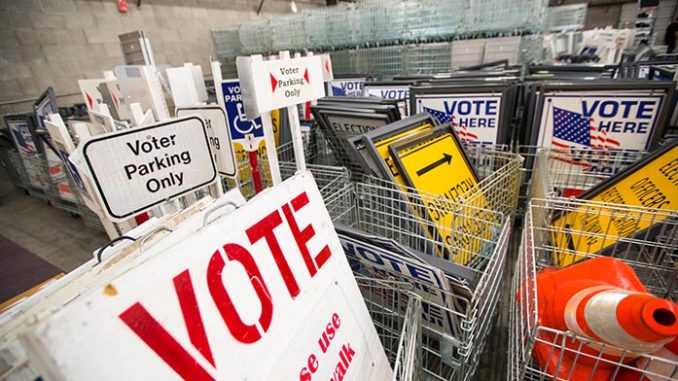
Peter Clark
Many Americans are presently fed up with the current two-party system of politics. Arizona residents are not immune to the frustrations of having to choose between the better of two evils. The 2020 election season marks the first time since 1990 that Arizona will not have a third-party or independent candidate on the ballot. Does the question become what has allowed both the Republican and Democratic parties to secure a firm duopoly on Arizona ballots? Stringent ballot access laws. History has shown that as ballot access laws become more rigorous the number of parties decreases. Arizona has over the years has consistently ranked among the states with the most onerous ballot access requirements. Effectively narrowing the number of choices allotted to the voter.
It is easy to speculate that Arizona ballot access laws were designed to benefit the major parties. Particularly these laws amend signature requirements necessary to appear on a state ballot. For example, HB 2608 back in 2015 increased the signature count to appear on the ballot. The Constitutionality of this imposed barrier to entry has been contested by the Libertarian Party. Unfortunately, the Supreme Court ruled in favor of the state of Arizona. Leaving this cumbersome requirement on the books. It should be added that this is a requirement that either of the major parties could easily fulfill. Making it difficult to easy the suspicion that this law was implemented strategically. Especially when there are plenty of past examples of states formulating similar laws to restrict minor parties. Signature Requirements and strict datelines were weaponized back in the 1930s to keep the Communist party off the ballot. The state of Alabama tripled the signature requirements in an attempt to prevent the Patriot Party from poaching voters from the Democratic party. When a member of the GOP speaks of how HB 2608 benefits the party, it is difficult to believe the law has any legitimate function.
Ballot access laws tend to be justified by flimsy arguments. Generally on the grounds that voters need to be insulated from the threats of confusion, frivolous candidacies, and political instability. Most of these concerns are hyperbolic at best. Even before strict ballot access laws voter confusion and rampant frivolous candidacies were not an issue. In the event of confusion, voter preferences will resolve that issue. When in doubt people tend to levitate towards policies they are familiar with. Eliminating the need for a legal safety net. Joke candidates will invariably lose votes to a sincere contender. Arguing for more intensive requirements for the benefit of the voter is a false premise. These laws only serve to keep serious candidates out of the race.
Impenetrable ballot access laws also serve as a form of political censorship. The court’s ruling on the Constitutionality of ballot access laws tend to ignore the expressive function of voting. A vote represents more than the policy preferences of a constituency. It can be a form of protest, it represents a set of moral and philosophical values. By limiting the variety of candidates, the state is effectively limiting the free expression of the voter. However, this form of circuitous censorship also impacts candidates. A campaign platform performs an expressive function through perpetuating or denouncing specific policies. Minor parties have brought invaluable commentary to the political barging table. In the 1840s the Liberty Party made waves through advocating for an end to slavery. In more recent history few can forget Ross Perot. The only presidential candidate who was willing to criticize the NAFTA agreement.
The current ballot access laws in Arizona have done nothing to benefit the average voter. These laws only serve to retain the political influence of major parties. Therefore, these unjust laws such be repealed.
